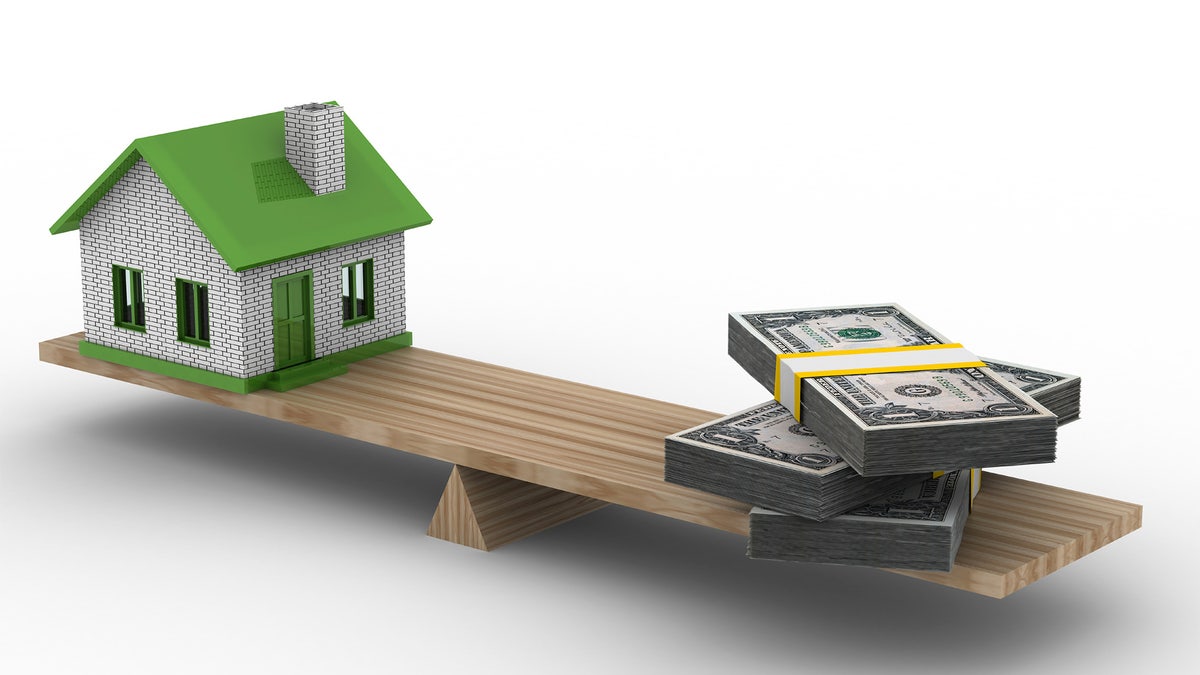
how-much-house-afford
Knowing you want to buy a home is one thing; knowing what you can pay for is quite another. Too often, dreams and reality collide: You're yearning for a four-bedroom Colonial, but your wallet can handle only a two-bedroom bungalow. So how do you filter the myriad options out there?
Welcome to Step 3 in our 2016 Home-Buying Guide, in which we help you figure out how much home you can afford. Progressing without nailing this step is like jumping off a mountaintop without one of these cool flying squirrel outfits. You're leaving yourself open for a world of pain.
Consider your salary as a starting point
Getting a ballpark estimate of how much home you can afford boils down to how much money you're pulling in.
"The general rule of thumb is that you can purchase a home that costs two or three times your annual salary," says Harrine Freeman, a financial expert and the owner of H.E. Freeman Enterprises.
So if you're making $80,000 per year (and you have a reasonable amount of job security), that means you can afford a house up to three times that, or $240,000. That said, "this is only an estimate and does not account for your monthly bills," says Freeman. So let's dive into more specifics.
Follow the 28/36 rule
If you're overwhelmed by numbers, budgets, and big-ticket decisions, follow the 28/36 rule, a simple but effective guide for affordability. The "28″ refers to your monthly housing payments -- things such as mortgage, insurance, and taxes -- which shouldn't be more than 28% of your gross monthly income (ideally it should be less). This is easy to calculate, because all you need to do is multiply. For example, if your gross (meaning before taxes are taken out) monthly income is $6,000, multiply that by 28% (or 0.28) and that means you shouldn't pay more than $1,680 on your home.
The "36″ refers to your debt-to-income ratio, which compares how much money you owe (to credit cards, colleges, car loans, and -- hopefully soon -- a home loan) to your income. This ratio should be "no more than 36%," says Freeman; ideally, it should be much less. Think about it in terms of your monthly expenses: If you make $6,000 per month but spend $500 paying off debts, you divide $500 by $6,000 to get a debt-to-income ratio of 8.3%. This is great, but adding $1,680 per month in mortgage payments would push up your monthly debt load to $2,180 and your debt-to-income ratio to 36%. This is exactly the maximum experts say you can afford. Going past this threshold is a risky move.
Once you know both these numbers, as well as how much of a down payment you plan to contribute, you can easily work out the maximum monthly mortgage payment you can afford -- and by extension, the priciest house you should buy. According to realtor.com's Home Affordability Calculator, if you make $6,000 a month, pay $500 in debts (pre-house), and can make a down payment of $40,000, if you get a 30-year fixed mortgage at 4% interest you can afford a house worth $277,800. Plug in your own numbers and see what happens!
Consider your dreams and the alternatives
Once you've determined how much you can spend, you can start weighing what you absolutely must have in your home -- and what you're willing to sacrifice if necessary. Use the "pick 2″ rule: price, quality, location. Typically you can prioritize two of those categories, but not all three. Your best bet is to stick to an amazing neighborhood for an amazing low price, and know that your home might not have that pool, wine cellar, or other amenities you'd hoped for.
These trade-offs are just the reality of house hunting, so don't be disheartened. Consider widening your search to different neighborhoods or knocking a few items off your must-have list until you find the location and amenities that best fit your budget. Weigh what really matters for your dream home, then start performing preliminary searches online using sites such as realtor.com. And try to stay optimistic -- with enough searching and some luck, you could find it all.
Once you've determined what kind of house you're looking for, it's time to put your feet to the pavement and start checking out the market in person. To do that, you'll need a Realtor. Not sure where to find one? Tune in for our next entry in this series.